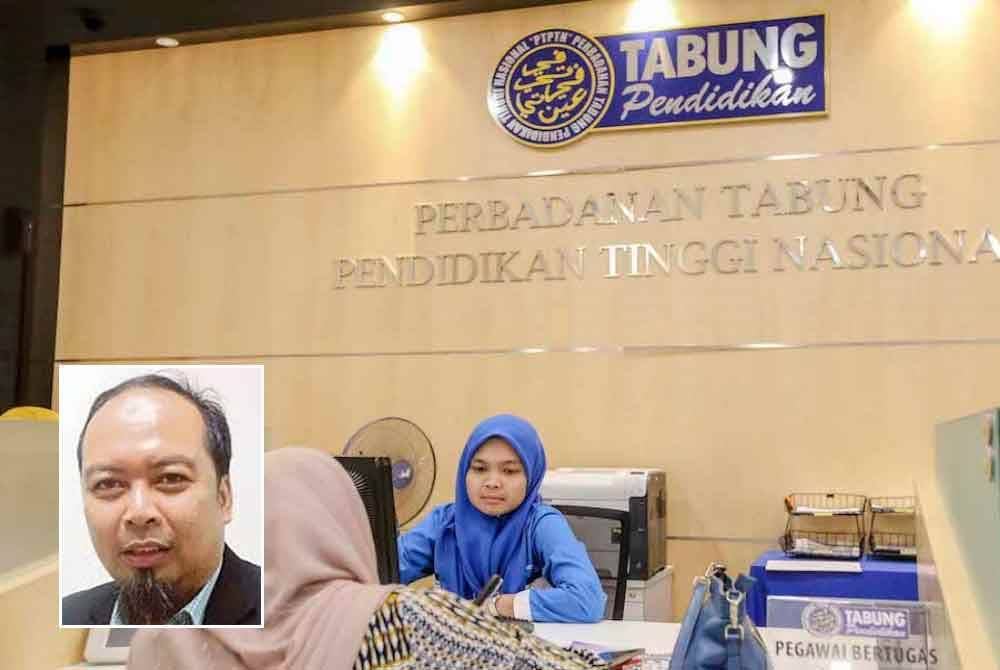PTPTN should adopt Qardh al-Hasan benevolent loan model
In 2001, the concept of Qardh al-Hasan was implemented in Pakistan under a project called Akhuwat, where loans were given to households without any interest charged.

SHAH ALAM – The National Higher Education Fund Corporation (PTPTN) should explore a new financing model using the Qardh al-Hasan, or benevolent loan system, which is used in several other countries, to help tackle loan repayment arrears.
Putra Business School Master of Business Administration programme director Professor Dr Ahmed Razman Abdul Latiff said this method was a sincere loan that does not impose interest or additional conditions upon repayment.
However, he said borrowers could make repayments with an additional amount beyond the loan sum as a gesture of gratitude, at their own discretion, which would be considered as hibah (gift or donation).
"In 2001, the concept of Qardh al-Hasan was implemented in Pakistan under a project called Akhuwat, where loans were given to households without any interest charged.
"After 23 years of operation across 800 branches throughout Pakistan, 6.3 million people have benefited from this project.
"There are several factors that contributed to the project’s success, which could be applied in the context of PTPTN.
"One of them is that loan recipients should come from the B40 (low-income) group, as they would appreciate this facility more and be inclined to help others in similar situations by contributing to the fund in the form of hibah.
"Interest-free loans would also be more suitable for Muslim borrowers since charging interest on loans is prohibited in Islam.
"Therefore, PTPTN should implement a pilot project for the Qardh al-Hasan concept," he said.
On Monday, Prime Minister Datuk Seri Anwar Ibrahim directed the PTPTN management to propose improvements to the loan repayment system after the Hari Raya Aidilfitri celebration, with the aim of alleviating the burden on borrowers.
Meanwhile, Higher Education Minister Datuk Seri Dr Zambry Abdul Kadir said the ministry has yet to decide whether to reinstate travel restrictions for PTPTN borrowers who failed to make repayments.
Commenting further, Razman said if the model achieved its intended goals, PTPTN could expand it as one of its main products.
He noted that as awareness of Islamic finance grew among Malaysian Muslims, the product was likely to be well received.
"What’s interesting is the potential of the hibah system itself. It is possible that the percentage of hibah contributions could exceed the total collection obtained by financial institutions through interest charges.
"Imagine if PTPTN implements something even better, allowing its borrowers to contribute back to PTPTN in the form of hibah. Since it follows the Qardh al-Hasan principle, these contributions would have a lasting positive impact by helping more borrowers as long as repayments continue," he said.
Recently, the National Audit Department recommended PTPTN to review the education loan repayment collection mechanism to address the issue of outstanding education loan repayments, which have increased between 2019 and 2023.
As of 2023, PTPTN’s total outstanding education loan debt stood at RM10.853 billion, while repayments received amounted to RM3.553 billion, which was 32.7 per cent.
PTPTN was established under the National Higher Education Fund Board Act 1997, which came into effect on July 1, 1997. Over the past 28 years, the agency has helped millions of students pursue higher education.
Travel restriction was one of the initiatives previously implemented to address repayment arrears.
Download Sinar Daily application.Click Here!















